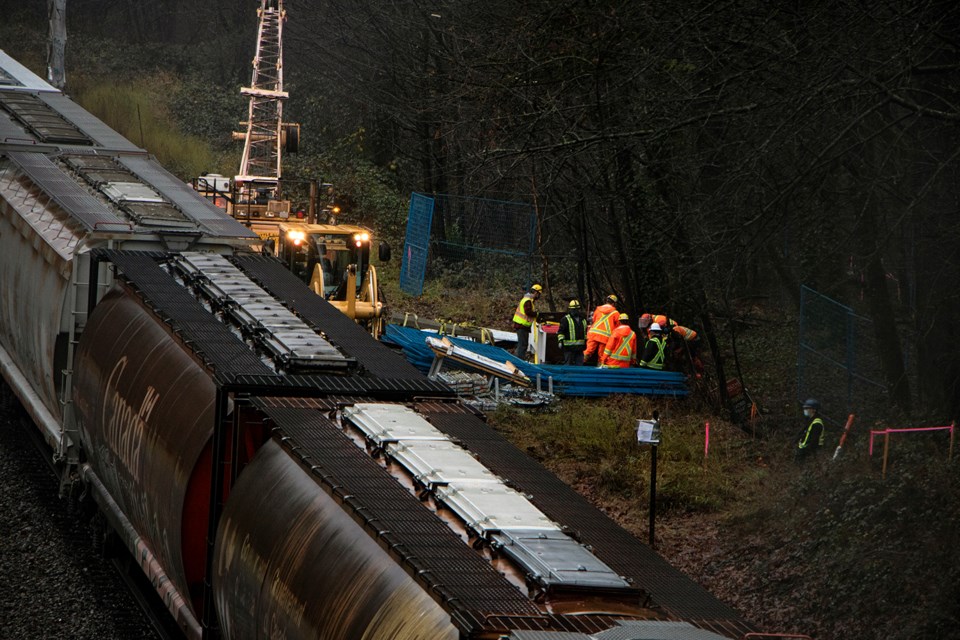Three panellists with the Canada Energy Regulator heard arguments from the two public bodies in a Friday morning hearing to determine whether the city has caused unreasonable delays in its tree removal permitting process to make way for the Trans Mountain pipeline expansion.
Trans Mountain plans to remove more than 1,300 trees on public and private property in Burnaby to make way for the project. The National Energy Board – the predecessor of the CER – determined several years ago, with the backing of the Federal Court of Appeal, that the city cannot block Trans Mountain from obtaining those permits or cause unreasonable delays.
The issue was brought to the CER in December, however, with Trans Mountain claiming the city had indeed caused unreasonable delays in this process.
On Friday, lawyers for both the municipality and the federal Crown corporation had a chance to back up their earlier written submissions with oral arguments, and each painted the other as proceeding in bad faith.
The city’s lawyer, Gregory McDade said the focus of their argument was on just a few days in December. The city noted it had not received any applications from Trans Mountain to approve the removal of 1,308 trees in the community until Dec. 7, 2020, and they were given only until Dec. 11 to respond.
The city argued Trans Mountain knows four days are “grossly insufficient” for a permit to remove even one tree, let alone well over a thousand. In fact, McDade characterized the issue as one of the largest – if not the largest – tree removal projects the city has ever seen.
“That kind of a gun-to-your-head deadline is simply not reasonable,” he said.
On Dec. 15, just a couple of business days after the Trans Mountain-imposed Dec. 11 deadline, the pipeline company filed its complaint with the CER.
In the summer of 2020, Trans Mountain submitted a tree management plan to the city, which is largely where the dispute originates.
Trans Mountain’s lawyer, Sander Duncanson, argued that for such a large project, which requires hundreds of permits, the company expected to be working more fluidly with the city and to have permits submitted and approved on an as-needed basis.
The city, however, argued it is still bound by its regulatory process, and the tree management plan was submitted outside of the approvals process. When it submitted the plan in the summer, Trans Mountain sought comments, but the city’s lawyer said there were not comments to be made since it was not submitted within the city’s processes.
To that, Duncanson noted the city has “not shown any willingness” to approve tree removal permits, indicating when the application was submitted that it would likely not approve the application “as is.” Duncanson said the city was expecting substantial information from Trans Mountain that would cause significant delays for permits that may not even receive approval.
However, the city pointed out it has worked with Trans Mountain on other permits and has generally approved them within a reasonable time.
Follow Dustin on Twitter: @dustinrgodfrey
Send him an email: [email protected]



